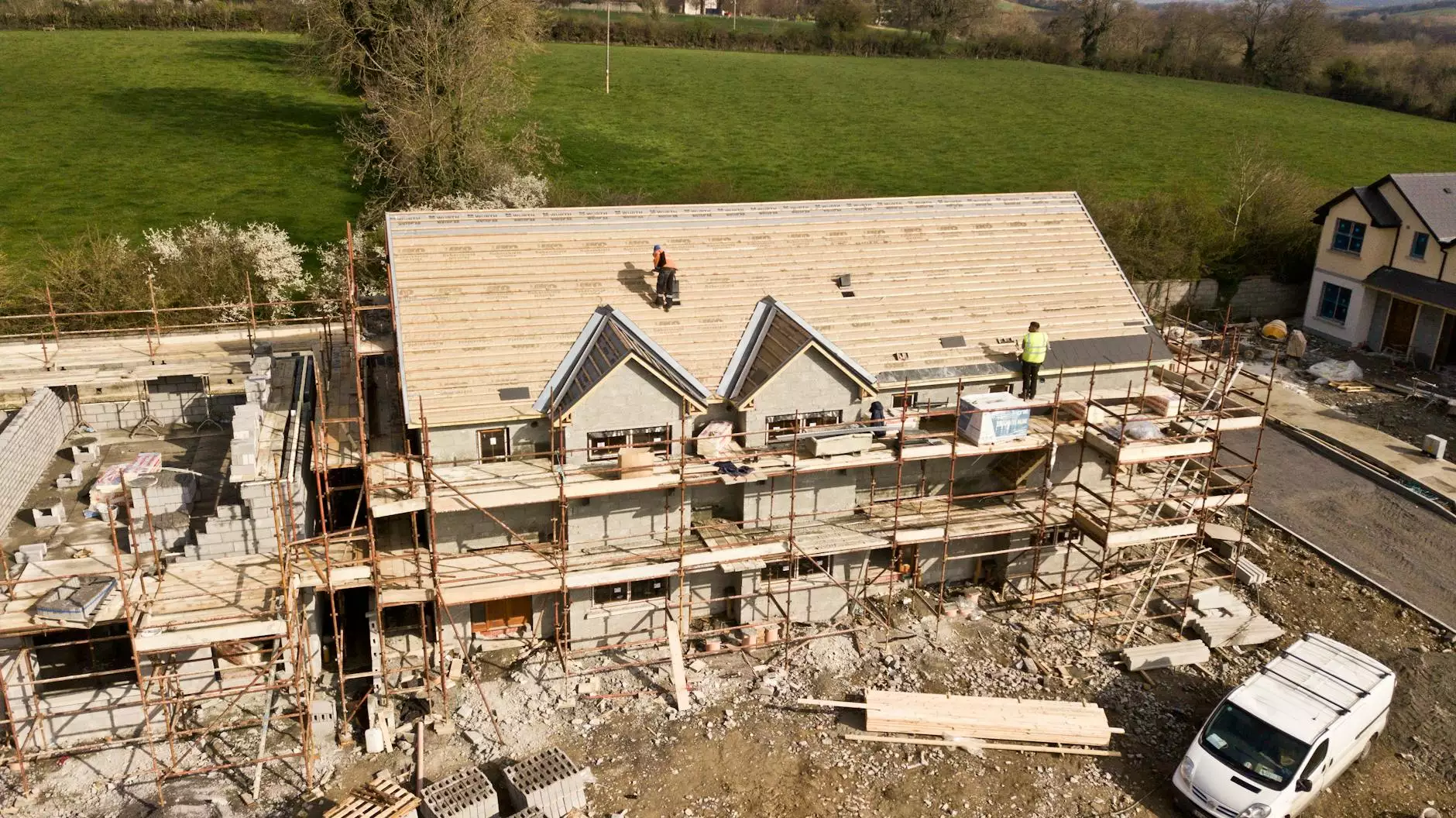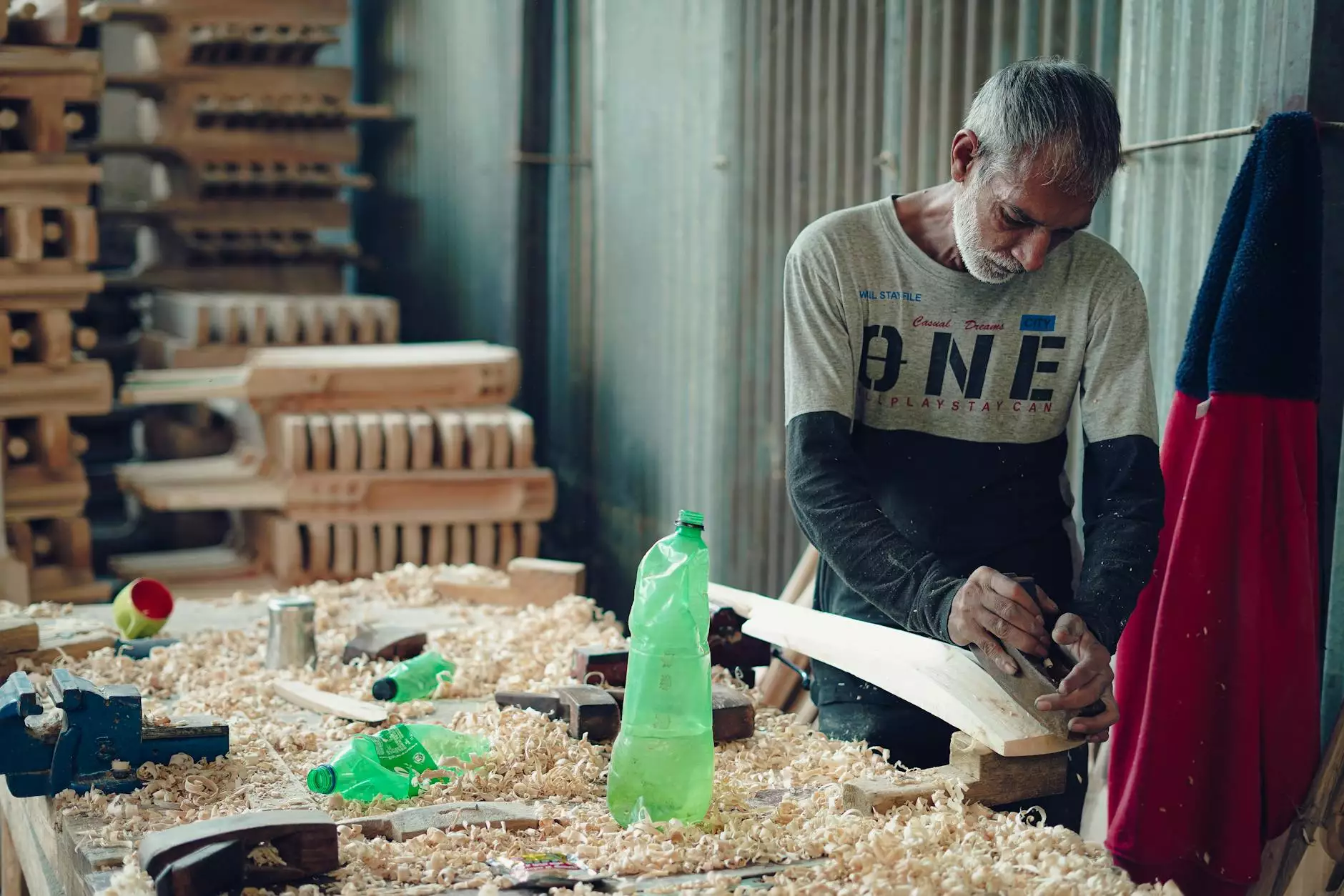Comprehensive Guide to Business Success with Asphalt Plant: Innovation and Efficiency

In the dynamic world of construction and infrastructure development, the asphalt plant stands as a cornerstone of modern development projects. From highway construction to urban development, the asphalt plant's role in delivering high-quality, durable paving materials is indispensable. This comprehensive guide explores the essence of the asphalt plant, its technological advances, business advantages, and how it empowers companies to flourish in a competitive marketplace.
Understanding the Asphalt Plant: The Heart of Modern Construction
The asphalt plant is a specialized manufacturing facility designed to produce hot mix asphalt (HMA) used extensively in paving roads, airports, and parking lots. Modern asphalt plants are engineered to optimize production efficiency, environmental sustainability, and product quality, making them vital for construction enterprises aiming for excellence.
The Core Components of an Asphalt Plant
- Cold Aggregate Feeder: Introduces various sizes of aggregates into the system, ensuring a precise blend for optimal performance.
- Drying Drum: Dries and heats aggregates to specific temperatures, enhancing binding properties.
- Bitumen Supply System: Provides the viscous binder that holds aggregates together, ensuring flexibility and durability.
- Mixing Chamber: Combines heated aggregates and bitumen uniformly, producing consistent asphalt mixes.
- Storage Silos: Store finished asphalt until it is transported to the construction site, maintaining temperature and quality.
- Control System: Advanced automation ensures precise process control, operational safety, and real-time monitoring.
Types of Asphalt Plants: Tailoring Solutions to Business Needs
Choosing the right asphalt plant depends on various factors, including project scale, production capacity, and technological preferences. The main types include:
Batch Mix Asphalt Plants
This type produces asphalt in specific, named batches, offering high flexibility for different mixes. It is ideal for projects requiring varied asphalt specifications or polymer-modified mixes. Its modular design facilitates quick maintenance and adaptability.
Drum Mix Asphalt Plants
Designed for continuous production, drum mix plants are highly efficient and suitable for large-scale projects like highway construction. They operate with fewer moving parts, reducing maintenance costs, and offering a steady production flow.
The Innovative Role of Technology in Asphalt Plants
Technological advancement has revolutionized the asphalt plant industry, leading to smarter, more sustainable, and higher-performing asphalt production. Some notable innovations include:
- Automation and Control Systems: Integration of PLC (Programmable Logic Controllers) and SCADA (Supervisory Control and Data Acquisition) systems enables real-time process optimization, minimizing waste, and ensuring consistent quality.
- Environmental Technologies: Modern plants incorporate dust collection systems, emission control units, and recycling options to reduce ecological impact.
- Energy Efficiency: Use of energy-saving dryers, regenerative burners, and waste heat recovery systems lower operational costs and carbon footprint.
- Advanced Material Handling: Innovative conveyors and feeders improve material flow, reducing spillage and contamination.
Business Benefits of Investing in a Quality Asphalt Plant
Investment in a state-of-the-art asphalt plant translates into significant competitive advantages:
Enhanced Production Efficiency
Modern plants deliver higher outputs with minimal downtime, enabling faster project completion and increased profitability. Automation reduces manual labor and minimizes errors, streamlining operations.
Superior Product Quality
Precision control of temperature, mixing, and material proportions ensures consistent asphalt quality, leading to longer-lasting pavements and satisfied clients.
Cost Savings and ROI
High-efficiency equipment and eco-friendly technologies reduce energy consumption and waste. Recycling reclaimed asphalt pavement (RAP) can further cut material costs and environmental impact, driving a strong return on investment.
Market Expansion Opportunities
By ensuring reliable supply and superior quality, companies can expand their service offerings, target larger projects, and establish enduring industry relationships.
Environmental Sustainability and Regulatory Compliance
In today’s eco-conscious landscape, sustainable practices are essential. Asphalt plants are increasingly adopting green technologies such as:
- Recycling Systems: Utilizing RAP to minimize waste and reduce dependence on virgin materials.
- Emission Control Devices: Cyclones, baghouses, and SCR (Selective Catalytic Reduction) systems to control dust, odors, and NOx emissions.
- Energy-Efficient Equipment: Regenerative burners and heat recovery systems lower energy use.
Complying with environmental regulations not only safeguards the planet but also enhances corporate reputation and preempts costly violations.
Future Trends in Asphalt Plant Technology and Business
The asphalt industry is poised for continued innovation, driven by the need for sustainability, efficiency, and smart manufacturing. Some of the emerging trends include:
- Smart Manufacturing: Integration of IoT (Internet of Things) sensors for predictive maintenance and process analytics.
- Modular and Portable Plants: Flexibility to adapt to different sites and project sizes, reducing setup time and costs.
- Green Asphalt: Developing asphalt mixes that incorporate recycled polymers, rubber, and bio-based binders.
- Global Industry Integration: Increased collaboration across supply chains and technology providers, fostering innovation.
Choosing the Right Partner: Why PolygonMach is a Leading Name
For businesses seeking to establish or upgrade their asphalt production capabilities, collaborating with an experienced provider like polygonmach.com offers numerous advantages. Their expertise encompasses:
- Innovative Equipment: State-of-the-art asphalt plants with cutting-edge control systems and environmental features.
- Customized Solutions: Tailored plant configurations to match specific project demands and business objectives.
- Technical Support & Training: Comprehensive after-sales services, operator training, and maintenance support.
- Sustainability Focus: Emphasis on eco-friendly technologies and practices for future-proof operations.
Conclusion: Building a Prosperous Future with the Right Asphalt Plant
The success of construction projects and infrastructure development heavily relies on the quality, efficiency, and environmental responsibility of asphalt production. Investing in an advanced asphalt plant not only ensures superior product quality but also empowers companies to optimize operations, expand their market reach, and adhere to increasingly strict environmental standards. As the construction landscape evolves, integrating innovative technology and sustainable practices is vital for staying ahead in a highly competitive industry.
Partnering with reputable providers like polygonmach.com guarantees access to innovative solutions that align with future trends, delivering long-term business growth and industry leadership.









